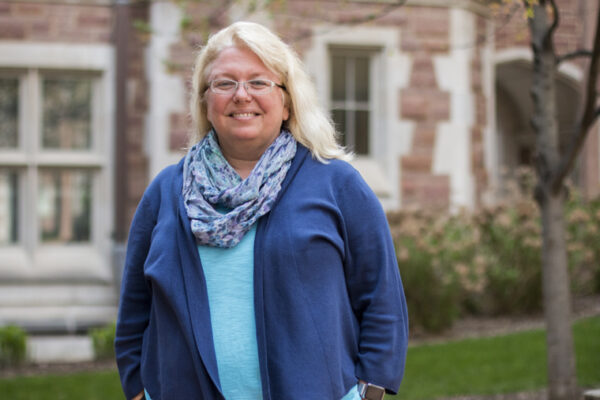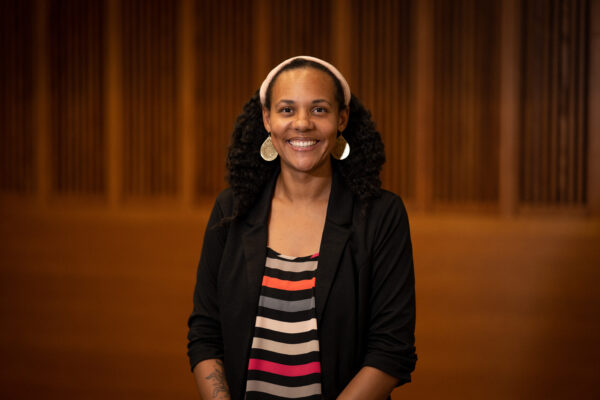Self-management skill, sense of purpose go hand-in-hand
Psychological researchers in Arts & Sciences find self-regulation and social engagement skills can potentially foster a sense of purpose.
Brain structure differences provide clues to substance use risks
Researchers at Washington University found correlations between types of brain structure and people who try drugs before age 15.
How to make resolutions that stick
People should be strategic about how and when they set new goals, according to positive psychology researcher Tim Bono at Washington University.
Barch honored by national mental health organizations
WashU researcher Deanna Barch was recognized by two national organizations for her work on schizophrenia and other mental health conditions.
Potential of mindfulness to enhance cognitive health in Latinx older adults being studied
WashU researchers have received a National Institutes of Health (NIH) grant to explore the potential for mindfulness approaches to protect against dementia in groups of older Latinx adults.
Humans change their own behavior when training AI
Researchers from multiple disciplines at Washington University teamed up to study how human behavior changes when training artificial intelligence.
Researchers find biological clues to mental health impacts of prenatal cannabis exposure
Researchers at Washington University have found some potential biological clues to explain how prenatal cannabis exposure leads to behavioral issues down the line.
Social workers key to psychedelic-assisted therapies
As psychedelic-assisted therapy gains mainstream acceptance, the role of social workers, who provide a significant portion of mental health services in the United States, will become increasingly important in this emerging field, says an expert on mental health in the Brown School.
Faculty named to American Academy of Arts & Sciences
Four Washington University in St. Louis faculty are among 250 newly elected members of the American Academy of Arts & Sciences, one of the nation’s most prestigious honorary societies. They are John Atkinson, MD, Pauline Kim, Adia Harvey Wingfield and Jeffrey Zacks.
Leath to receive early career award
Seanna Leath, an assistant professor of psychological and brain sciences in Arts & Sciences at Washington University in St. Louis, has been selected to receive the Society for Research on Adolescence’s Early Career Award.
Older Stories









